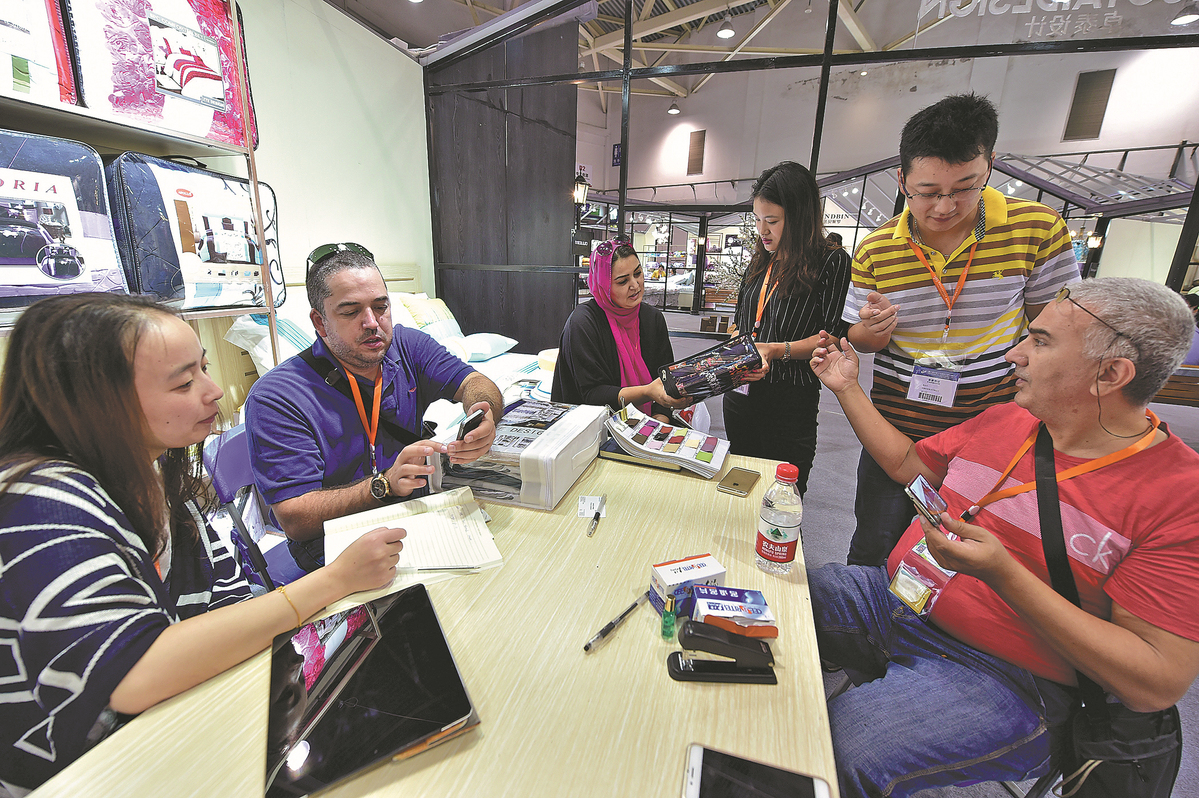
Moroccan business delegates inquire about products during a trade fair in Yiwu, Zhejiang province. [LYU BIN/FOR CHINA DAILY]
Chinese and Moroccan companies have huge cooperation potential in electric vehicles, which is in line with Morocco’s decarbonization strategy and Chinese automakers’ outbound plans, Mohcine Jazouli, Morocco’s minister delegate to the head of government in charge of investment, convergence and the evaluation of public policies, told China Daily in an exclusive interview.
As understood by Jazouli, Chinese automakers, especially EV manufacturers, have met with multiple challenges on the supply chain side, which is complicated by pandemic impacts, geopolitical tensions in Ukraine, labor shortages and soaring energy prices.
The European Union’s carbon border adjustment mechanism aiming to prevent carbon leakage, the Inflation Reduction Act that took effect in the United States in August, and the European Commission’s Net-Zero Industry Act have placed more challenging requirements on Chinese EV exports, he said.
Against that backdrop, Chinese EV makers have to make a good choice for their next production location. Morocco can serve as a solution by providing the necessary skills and help in reducing energy prices by supplying cheap green electricity.
Morocco is home to the world’s largest solar farm — the Noor Ouarzazate Complex. The 3,000-hectare project can provide enough electricity to power a city the size of Prague. In 2022, about 41 percent of Morocco’s power came from renewable sources.
While already being an “international auto-supply base and having auto-market access and political willingness of doing business together”, Morocco’s mining resources offer great opportunities for Chinese EV makers, said Jazouli.
“Morocco has the largest phosphate reserves in the world, as well as cobalt, manganese and copper, which our country intends to value for EV manufacturing. All in all, this makes a great value proposition for Chinese EV players willing to go international,” he said.
Morocco is now Africa’s largest car manufacturer with an annual production capacity of nearly 1 million vehicles. It is home to two automotive equipment manufacturers and another 250 suppliers. Based on the country’s industrialization plan conducted over the past five years, the value of the Moroccan automotive industry recorded an average annual growth rate of 15 percent.
As calculated by the Moroccan Investment and Export Development Agency, the automotive industry is Morocco’s top exporting sector with its annual export turnover exceeding $10 billion as early as 2019. Morocco has therefore grown into the largest non-EU car exporter to the European market.
According to Jazouli, Chinese automakers have much willingness to grow overseas. Over time, Morocco has signed 54 free trade agreements, including with the EU and the US. Combined with the country’s political and economic stability and infrastructure construction, the overall business environment in Morocco means opportunities for automotive companies wishing to increase their international footprint and market share, he said.
